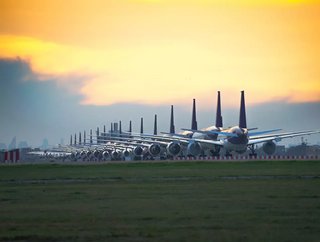How will we travel after COVID?

Many countries are now cranking up their engines - both literally and metaphorically - in a bid to revive their economies following the pandemic. But the transport sector faces a range of challenges, whether it's the urgent need to decarbonise, impact of remote working or country accessibility in a post-pandemic, hotchpotch-vaccinated world.
It's not just the industry at a fork in the road; while many consumers are desperate to get away after a year of lockdowns, others appear happy to stay grounded. According to a recent GHD survey, 36% of people in the UK expect to travel by air less than they did before the COVID-19 pandemic and only 9% think they will fly more. Business travel, a key revenue driver for airlines, has been undermined by the ubiquity of Zoom - although tellingly, even CEO Eric Juan has admitted to 'Zoom fatigue'.
The UK is introducing rules based on a traffic light system, with countries rated green, amber or red based on their Covid risk, but the list of 'green countries' with the fewest travel restrictions is expected to be small when travel opens up on May 17. Meanwhile airlines continue to find the trading environment unremittingly tough; IAG today reported a first quarter operating loss of €1,135 million before exceptional items, compared with an operating loss of €535 million last year.
The global nature of airline traffic, with passengers catching connecting flights in the likes of London, Dubai and Doha, presents challenges given countries are at different stages of their vaccination programmes - and then there are countries such as India which remain in the teeth of the crisis. The UK has done well with its vaccination programme (51 million so far), but Spain has only vaccinated 5 million to date (though it aims to double that by early June). The varied picture will mean that this summer travel season will be a shadow of a normal one.
Industry body IATA has developed a travel pass app, which looks the most coherent method of certifying COVID-19 tests and vaccines globally. The ‘digital passport’ can be used by travellers to manage their documentation on their mobiles at all stages of their journey; but that poses another problem. "These tools will only be effective if users feel that their data is protected. Privacy, consent and transparent data governance must be at the heart of any technical solution," warned The World Economic Forum in a paper last year.
Jonathan Edwards, Transport Market Leader for EMEA at GHD, said the transformation in our relationship with physical travel could be one of the most visible legacies of the pandemic, as our established working and travelling habits have undergone a seismic shift.
"Public transport is seeing significantly reduced passenger and revenue levels and we know operators are feeling the squeeze from this, set against their overheads and long-term financial costs, forcing them to focus predominantly on business continuity," he said. “We appreciate that more time is needed to understand the changes that will arise from the pandemic, but we also think there are major opportunities for companies that can harness greater insight, data and support to replan and reposition their organisation for the future and to meet passenger travel needs as they return to the network in various forms."
He added transport entities are facing increasing pressure to decarbonise operations and assets. But for all the growth in electric vehicles, petrol cars rule the roost, and 47% expect to use them the same amount as pre-COVID, the survey found - although 57% would prefer to see increased investment in greener public transport being prioritised over investment in personal transport in their local area. The sustainable dial is shifting.
"There is no easy solution to decarbonisation but the current focus should be on capturing asset information, monitoring movement patterns and reinventing services and supply chains to keep emissions as low as possible, with technology that is currently available," he said. "Transport is a particularly data rich sector but much of the data is yet to be integrated and analysed in a way that can help governments, operators and investors deliver value. Data intelligence and behavioural modelling will play a fundamental role in understanding and predicting consumer behaviour and asset performance, as more permanent patterns emerge and the long-term impacts of COVID become clearer."
Members of a U.S. House of Representatives subcommittee recently met executives from the biofuels and airline industries to discuss ways to expand production of low-carbon aviation fuel. Liquid fuels, hydrogen and electrification are all likely to play a role in a climate neutral economy too. The aviation industry has committed to reducing carbon emissions by 50% from their 2005 level by 2050. "Blending lower carbon SAF with fossil jet fuel will be essential to meeting this goal," notes the IEA.
But the clock is ticking. And the key challenges are much the same today as they were five years ago: producing fuel at scale that can meet global travel needs.






